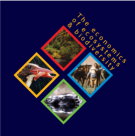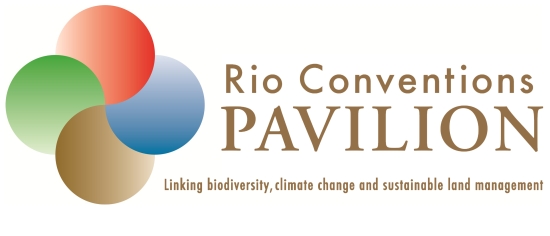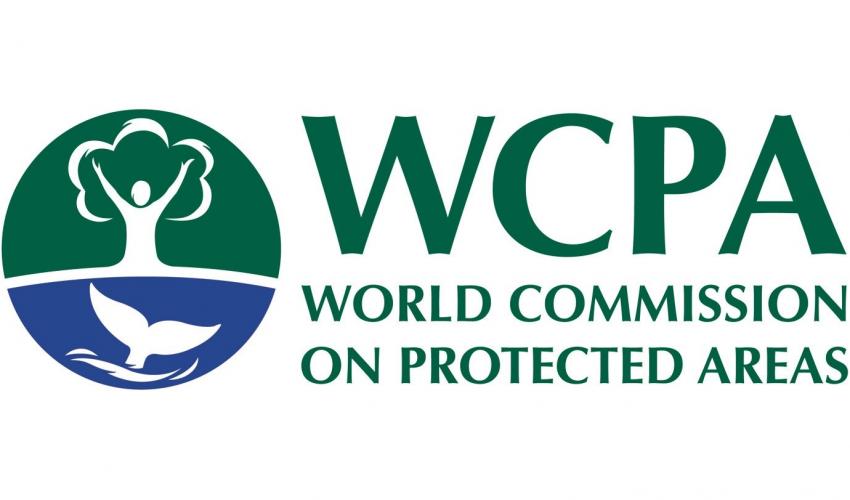The Rio Conventions Pavilion Partners+
The Rio Conventions Pavilion is a partnership involving a number of important partners. Information about these, including their role in enhancing linkages between biodiversity, climate change and sustainable land management is available on this page.
 |
Republic of Korea |
 |
Japan The Government of Japan will lead CBD COP10 to form an agreement for new actions to be taken by all stakeholders in the world. During the COP presidency, Japan will promote the implementation of TEEB for biodiversity conservation and its sustainable use. |
|
|
Mexico |
 |
European Commission http://europa.eu/ The European Commission promotes investment in working with nature, developing green infrastructure, recognising the potential for multiple benefits of ecosystem-based approaches to climate change adaptation and mitigation. |
 |
Norway The Government of Norway is providing up to USD 500m annually through its International Climate and Forest Initiative, thus supporting synergies between forest loss, climate change and biodiversity conservation. |
 |
Netherlands The Government of the Netherlands is making strong efforts to halt the loss of biodiversity nationally as well as globally. Its programme 'Biodiversity Works 2008-2011', focuses on trade chains, payment for biodiversity, ecosystem services, ecological networks, marine biodiversity and the relationship between biodiversity, food security, climate change and poverty reduction. |
 |
Spain The Government of Spain recognizes the importance of the conservation of ecosystems to ensure that they continue to provide essential goods and services, to reduce vulnerability to the adverse impacts of climate change, reduce desertification risks and maintain biodiversity, thus contributing to the objectives of the three Rio Conventions. |
 |
Flemish Government http://www.flanders.be Flemish Government Within the federal state of Belgium, the Flemish Environment, Nature and Energy Department (LNE) underlines the importance of comprehensive ecosystem based policy approaches that integrate the challenges of biodiversity, mitigation of and adaptation to climate change, desertification, soil and land degradation, food security, poverty reduction and sustainable social and economic development. |
 |
GLISPA http://www.cbd.int/island/glispa.shtm lThe Global Island Partnership brings together island nations and nations with islands — small and large, developing and developed — to help ensure that island conservation and sustainable livelihoods are integrated into the development process and dialogue, including through ecosystem-based approaches to adaptation and mitigation. |
 |
ICLEI http://www.iclei.org/ Local Governments for Sustainability ICLEI – Local Governments for Sustainability, in partnership with IUCN, are implementing the acclaimed Local Action for Biodiversity Programme. Working with local governments worldwide, it includes a strong focus on linkages between the three Rio Conventions. |
 |
Lifeweb http://www.cbd.int/lifeweb/ LifeWeb is a partnership platform managed by the CBD Secretariat to strengthen financing for protected areas to conserve biodiversity, secure livelihoods, and address climate change through implementation of the CBD Programme of Work on Protected Areas. |
 |
TEEB http://www.teebweb.org/TEEB The Economics of Ecosystems and Biodiversity initiative is an independent study drawing together experience, knowledge and expertise from across the world in science, economics and policy to enable practical actions in response to the growing evidence of the impact of the loss of biodiversity and the implications for sustainable development. |
|
|
WCPA https://www.iucn.org/theme/protected-areas/wcpa IUCN's World Commission on Protected Areas (WCPA) is the world's premier network of protected area expertise. It is administered by IUCN's Global Programme on Protected Areas and has over 2,500 members, spanning 140 countries.
IUCN IUCN is a membership Union composed of both government and civil society organisations. It harnesses the experience, resources and reach of its more than 1,300 Member organisations and the input of more than 16,000 experts. IUCN is the global authority on the status of the natural world and the measures needed to safeguard it. |
 |
Conservation International http://www.conservation.org Building upon a strong foundation of science, partnership and field demonstration, Conservation International empowers societies to responsibly and sustainably care for nature, our global biodiversity, for the well-being of humanity. |
| UNDP http://www.undp.org/ United Nations Development Programme works at both the national and local levels in more than 140 countries to build a broad consensus on environmental policy and to build capacity to implement environmental management measures and confront the pressures contributing to biodiversity loss, land degradation and climate change. UNDP's work at the local level is helping to inform policy makers at the national and global levels of what is working, what is not and why. |
|
 |
UNEP http://www.unep.org/ The United Nations Environment Programme addresses environmental issues at the global, regional and national levels. Its mandate is to coordinate the development of environmental policy consensus by keeping the global environment under review and bringing emerging issues to the attention of governments and the international community for action. |
| GEF http://www.thegef.org/ The Global Environment Facility, the largest funder of projects to improve the global environment, provides grants for projects in more than 165 countries. Investments to support implementation of global environmental agreements relate to six focal areas - biodiversity, climate change, international waters, land degradation, the ozone layer, and persistent organic pollutants. |
|
|
UNFCCC
|
|
 |
UNCCD http://www.unccd.int/ Established in 1994, the United Nations Convention to Combat Desertification, the sole legally binding international agreement linking environment, development and the promotion of healthy soils, works to alleviate poverty in the drylands, maintain and restore the land's productivity and mitigate the effects of drought. |
 |
CBD http://www.cbd.int/ At the 1992 Earth Summit in Rio de Janeiro, one of the key agreements adopted was the Convention on Biological Diversity with three main goals: the conservation of biological diversity, the sustainable use of its components, and the fair and equitable sharing of the benefits from the use of genetic resources. |







